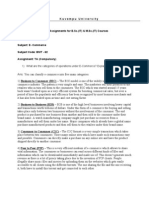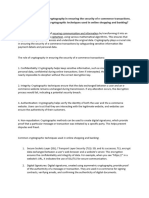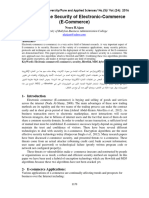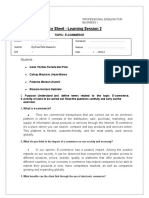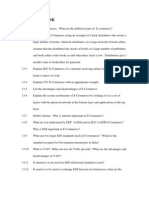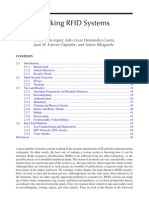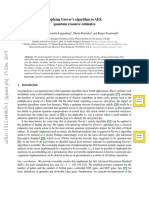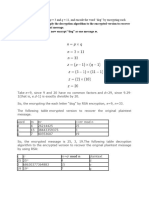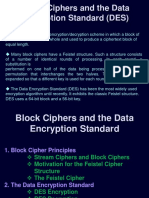0% found this document useful (0 votes)
17 views2 pagesE-Commerce Questions Answers
The document discusses key concepts related to e-commerce, including encryption and decryption for secure transactions, the difference between public and private keys, and ethical issues such as privacy and fraud. It also explains cryptography and digital signatures, mobile commerce, security threats like phishing and identity theft, and emerging trends such as AI and blockchain. Overall, it highlights the importance of security and innovation in the e-commerce landscape.
Uploaded by
Kashish SharmaCopyright
© © All Rights Reserved
We take content rights seriously. If you suspect this is your content, claim it here.
Available Formats
Download as PDF, TXT or read online on Scribd
0% found this document useful (0 votes)
17 views2 pagesE-Commerce Questions Answers
The document discusses key concepts related to e-commerce, including encryption and decryption for secure transactions, the difference between public and private keys, and ethical issues such as privacy and fraud. It also explains cryptography and digital signatures, mobile commerce, security threats like phishing and identity theft, and emerging trends such as AI and blockchain. Overall, it highlights the importance of security and innovation in the e-commerce landscape.
Uploaded by
Kashish SharmaCopyright
© © All Rights Reserved
We take content rights seriously. If you suspect this is your content, claim it here.
Available Formats
Download as PDF, TXT or read online on Scribd
/ 2





